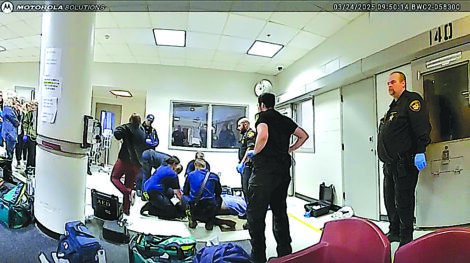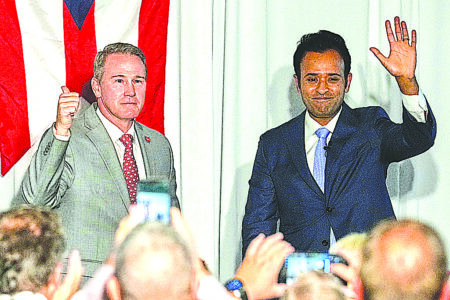Group: Proposed Ohio property tax fixes don’t go far enough
(The Center Square) — Recommendations to ease property taxes across the state do not go far enough, a Columbus-based policy group says of Gov. Mike DeWine’s working group.
The group, put in place to head off a grassroots push for a constitutional amendment that would eliminate property taxes in the state entirely, offered 20 recommendations.
Its ideas ranged from evaluating tax breaks for businesses, eliminating what it called abuses of property tax credits, limiting the amount of money school districts can save, to allowing county commissioners to end approved levees when they see fit.
All the recommendations, according to cochairmen Bill Seitz and Pat Tiberi, build off 13 proposals already in the Legislature or ideas already suggested.
“The recommendations outlined in this report build on 13 of the Legislature’s proposals and align with other ideas now under consideration,” the two said in the group’s report. “They represent areas of consensus where we believe constructive compromise is possible.”
Greg Lawson, research fellow with The Buckeye Institute, said the state needs to redo its local government system and the more than 6,000 entities that can tax in the state.
“Some of the recommendations from the Property Tax Reform Working Group are positive and align with recommendations made by The Buckeye Institute,” Lawson said in a statement. “However, as Ohioans clamor for relief from skyrocketing property taxes, more needs to be done. Ohio needs to revamp its complex and opaque local government system, as well as its thousands of separate taxing authorities. Until this happens, homeowners will continue to be stuck paying far more than they should for effective and efficient public services.”
The group recommended taxing districts only be allowed to carry over 100% of the money from levies. Any extra would be returned to taxpayers. And it wants to rename substitute and emergency levies as fixed-sum levies to help with voter transparency.
It also wants county commissions to approve or reject any proposed levies proposed by nonelected boards, such as libraries, mental health and drug addiction services, parks and boards of developmental disabilities.
It also wants to restrict emergency levies to only those school districts placed under fiscal caution, watch or emergency by the state auditor.
Ohio House Democrats said the majority of the recommendations would create larger financial issues for schools and municipalities.
House Minority Leader Dani Isaacsohn, D-Cincinnati, said in a statement Wednesday afternoon, “This should not be a partisan issue, so we were encouraged when the governor convened the working group. Unfortunately, while a few of the working group’s recommendations follow our lead to actually do something to solve the problem, such as the circuit breaker and expansion of the homestead exemption, too few of them would do anything other than pass the buck onto our schools and local communities.”


